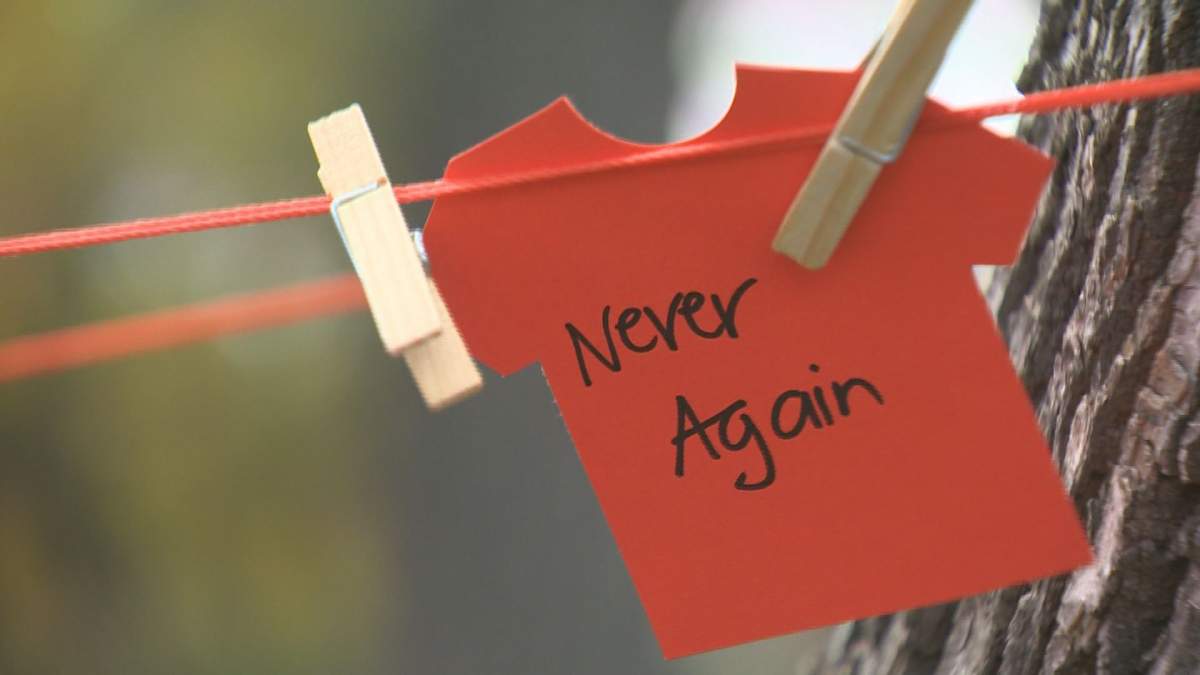Even without the large in-person group gatherings that marked Orange Shirt Day in the past, local advocates are ensuring its significance reverberates throughout Regina.

“The orange shirt represents that recognition toward reconciliation,” said Brad Belgarde of the City of Regina’s inclusion team, noting municipal events honouring the experiences of Indigenous children ripped from their families and placed in residential schools have largely moved online.
The movement, which has been marked on Sept. 30 in schools across Canada since 2013, was inspired by Phyllis Webstad, a six-year-old Indigenous girl living in B.C., who had her new orange shirt forcefully removed on her first day of residential school in 1973.
“This time of year is the time of year students do go back to school and for a lot of indigenous families, they recall this time of year as a not-so-great part of their life,” he said.

Get daily National news
“More importantly than recognizing the traumatic events, it’s more of an opportunity for education and learning.”
While the coronavirus pandemic impacted the ability of hundreds of people to get together at the Regina Public Library like they did last year, Belgarde hosted an online event from the First Nations University of Canada featuring Chief Cadmus Delorme of Cowessess First Nation, a performance by Indigenous rapper Lindsay Knight and several jingle dress dances performed by Kristen Tootoosis and Connie Starblanket.
Schools also moved many of their normal commemorative efforts online.
Scott Collegiate teacher Jeff Loyson noted how it’s one of the high school’s largest annual events.
“We usually have a big assembly. We invite our feeder schools, invite all members of the community to the space, and we honour the people that were connected, and our family, friends, and community at large who are either survivors or victims of the residential school system,” he said.

The event normally ends with a walk through the community to raise further awareness. That element was digital this year.
“Something that’s important to me is students aren’t just doing works for marks and assignment but rather having a bigger impact. They learn more skills, they become changers in our society. Storytellers sell ripples through the pond. That’s what we’re hoping to do,” Loyson said.
-With files from Global’s Kayleen Sawatzky and Shane Gibson








Comments